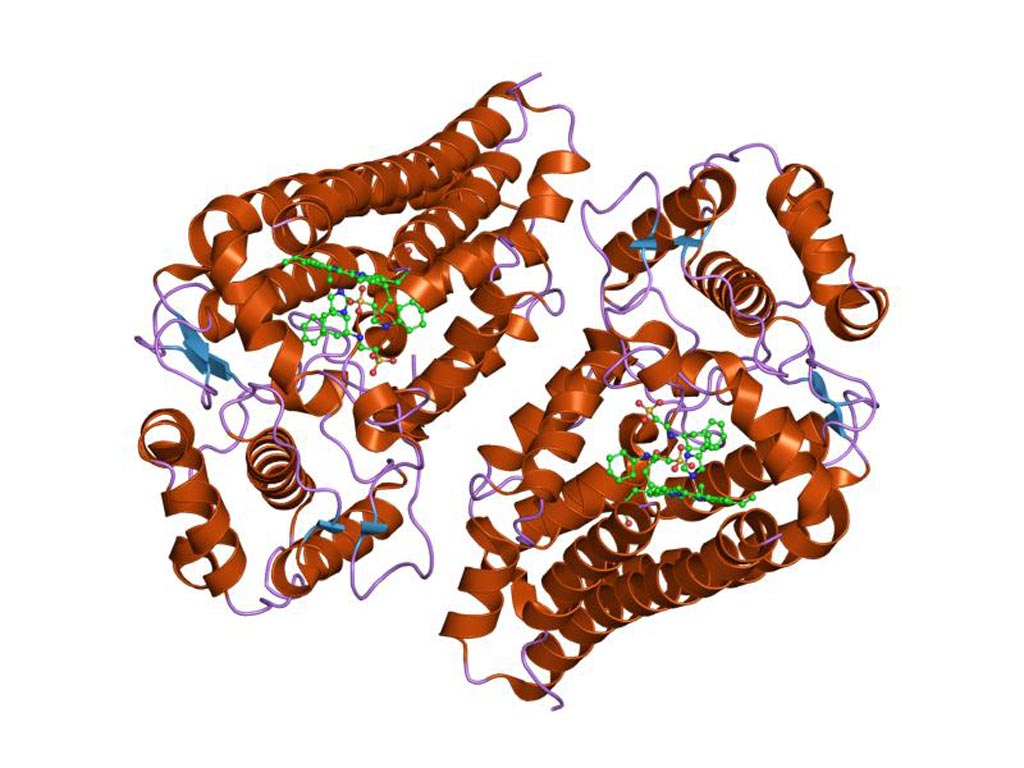Immune Tolerance Level Predicts Leukemia Outcome
By LabMedica International staff writers
Posted on 04 Dec 2017
Measurement of messenger RNA (mRNA) encoding an enzyme that augments tumor-induced immune tolerance was shown to be predicative of the outcome for patients with leukemia.Posted on 04 Dec 2017
Indoleamine 2,3 dioxygenase-1 (IDO-1) is an enzyme in the kynurenine pathway that augments tumor-induced immune tolerance. Previous studies in childhood acute myeloid leukemia (AML) have shown a negative correlation of IDO-1 mRNA expression with outcomes. In other words, increased IDO expression in bone marrow biopsies correlated with lower overall survival rates and early mortality.

Image: A representation of the molecular structure of the Indoleamine 2,3 dioxygenase-1 (IDO-1) protein (Photo courtesy of Wikimedia Commons).
Investigators at the Medical College of Georgia at Augusta University, USA) set out to develop a practical and objective immunohistochemical technique to quantify IDO-1 expression on diagnostic bone marrow biopsies of AML patients in order to facilitate its use in routine clinical practice.
In establishing the procedure, the investigators extracted IDO-1 mRNA from diagnostic bone marrow specimens from 29 AML patients. IDO-1 protein expression was assessed in 40 cases via immunohistochemistry and quantified by a novel "composite IDO-1 score."
Results revealed that a higher composite IDO-1 score could accurately predict poor outcomes. Further, patients who failed induction therapy (chemotherapy for AML) had higher composite IDO-1 scores. Therefore, the "composite IDO-1 score" was demonstrated to be a prognostic tool that could help identify a certain subset of AML patients with "early mortality." This unique subset of patients could potentially benefit from specific IDO-1 inhibitor therapy, currently in clinical trials.
"We want to help people who are not responding to treatment and are dying very soon after their diagnosis," said senior author Dr. Ravindra Kolhe, associate professor of pathology at the Medical College of Georgia at Augusta University. "Most of the time, we do not know why patients are not responding to chemotherapy. Right now we know it is high in patients who die at six months and we show that it is an independent indicator if you adjust for other known variables."
The study was published in the October 16, 2017, online edition of the journal Scientific Reports.
Related Links:
Medical College of Georgia at Augusta University













